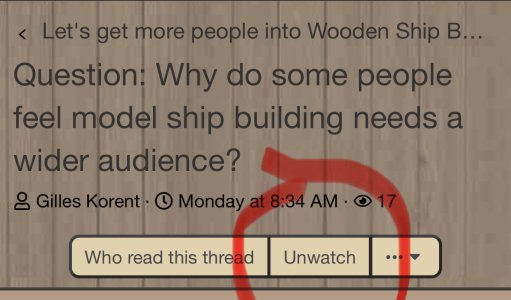I would like to emphasize that the supposed arrogance of scratch builders towards kit builders, as noted by @Jimsky, is, in my opinion, unfounded.
Building a ship model from a kit is simply a completely different ball game than a scratch built project. Personally, I rarely open a thread describing building a kit. Not because I look down on it, but because there is little new for me to learn. It is a different world, set in motion for reasons other than my own. But no reason is more or less valuable than another in my opinion. There are a hundred reasons to go model building and they are all valuable. I simply have no interest in following another Bounty, another Victory or a Titanic and certainly no Black Pearls. They simply don't fit in with my world of interest. Does that make me arrogant?
I see the forum as a box of chocolates: all the goodies are good, but some are simply more delicious than others for me. On the other hand I would never refuse help to a kit builder who approaches me with a question. But there are much richer sources than my limited experience.
And as for advertising model building to reach more people: Frankly my dear, I could not care less. Let everybody do what he likes to do.
Building a ship model from a kit is simply a completely different ball game than a scratch built project. Personally, I rarely open a thread describing building a kit. Not because I look down on it, but because there is little new for me to learn. It is a different world, set in motion for reasons other than my own. But no reason is more or less valuable than another in my opinion. There are a hundred reasons to go model building and they are all valuable. I simply have no interest in following another Bounty, another Victory or a Titanic and certainly no Black Pearls. They simply don't fit in with my world of interest. Does that make me arrogant?
I see the forum as a box of chocolates: all the goodies are good, but some are simply more delicious than others for me. On the other hand I would never refuse help to a kit builder who approaches me with a question. But there are much richer sources than my limited experience.
And as for advertising model building to reach more people: Frankly my dear, I could not care less. Let everybody do what he likes to do.









